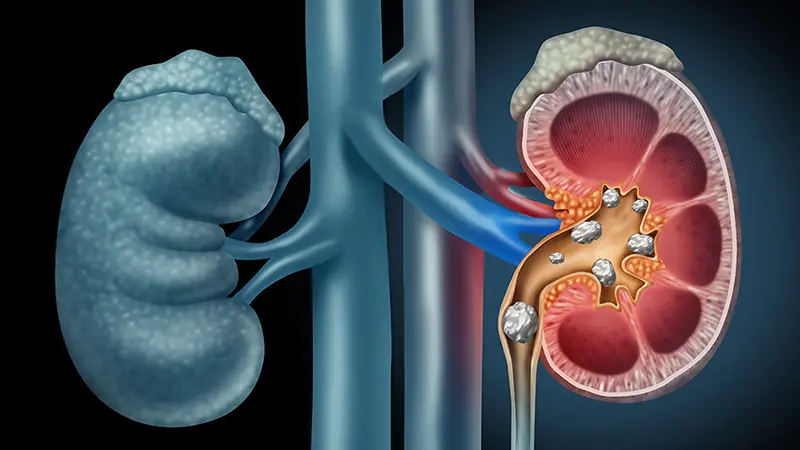
What Your Finger Length Could Reveal About Your Cardio Fitness
While it might sound like something out of a wellness myth, recent research suggests that the length of your fingers—particularly the ratio between your index and ring fingers—could provide surprising insights into your cardiovascular health.
The 2D:4D Ratio – What Is It?
Scientists refer to the comparison between the length of the index finger (2D) and the ring finger (4D) as the 2D:4D ratio. This ratio is believed to be influenced by the level of testosterone exposure in the womb. A lower 2D:4D ratio (a shorter index finger compared to the ring finger) is often associated with higher prenatal testosterone levels.
What Does This Have to Do with Your Heart?
Several studies have explored the relationship between the 2D:4D ratio and physical abilities. Some findings suggest that individuals with a lower 2D:4D ratio tend to have better aerobic capacity, muscular strength, and endurance—all factors that contribute to good cardiovascular fitness.
Researchers theorize that higher prenatal testosterone may contribute to the development of a stronger heart and a more efficient cardiovascular system later in life. This could explain why some athletes, especially endurance runners, often have a noticeably lower 2D:4D ratio.
Gender Differences and Fitness Potential
Interestingly, this finger length ratio tends to differ between males and females. On average, men have a lower 2D:4D ratio than women, which may be partly why men generally perform better in some physical fitness metrics. However, it’s important to note that finger length alone does not determine athletic ability or heart health—many other factors such as lifestyle, diet, genetics, and exercise habits play much larger roles.
Should You Be Concerned About Your Finger Length?
Not at all. While your 2D:4D ratio might offer a fun glimpse into your natural physical tendencies, it’s by no means a diagnostic tool. Think of it as a conversation starter rather than a clinical measure.
If you’re concerned about your heart health or want to boost your cardiovascular fitness, the best steps remain the same: maintain a healthy diet, exercise regularly, manage stress, and consult your healthcare provider for regular checkups.
News in the same category


A Common Ingredient in Energy Drinks May Be Linked to Blo.od Can.cer

Is 'Razor Blade Throat' Really a Sign of the Newest COVID Variant?

USA: Successfully tested a special dru.g that can elimi.nate up to 70 types of can.cer

See These 5 Fish at the Market? Grab Them Before They're Gone

Naming the phenomenon of not being able to wake up from a dream and related problems

Which Causes a Cold More Easily: Fan or Air Conditioner?

Don’t Install Ceiling Fans in These 4 Areas of Your Home

People Who Regularly Eat Cucumbers May Experience 3 Remarkable Changes Over Time

5 cheap household items that can bring can,cer to the whole family

Eating a handful of this vegetable is as precious as "poor man's ginseng", it grows all over the fences in the countryside but few people know about it

This delicious dish "has more iron than pig liver", a must-have this summer, you will love it!

Too Lazy to Drink Water? These 7 Health Problems Might Catch Up with You

Golden hours to know to drink coffee to maximize health benefits

Eating a Handful of This Leafy Green Is as Valuable as “Ginseng for the Poor”

Garlic Skins Have 4 Surprising Benefits

The Surprising Use of the Small Hole on Padlocks That Many People Don’t Know

Te.r.r.ifyi.ng study finds 30% of Americans could be infected with parasite that has ho.r.r.i.fic impact on brains

New study claims having these specific dreams every week 'triples' your r.i.sk of an early d.e.a.t.h
News Post

Say Goodbye to Yellow Stains: Best Ways to Clean Your Phone Case

A Glass of Milk a Day Could Help Lower Women's Risk of Color.ec.tal Can.cer

A Common Ingredient in Energy Drinks May Be Linked to Blo.od Can.cer

Is 'Razor Blade Throat' Really a Sign of the Newest COVID Variant?

USA: Successfully tested a special dru.g that can elimi.nate up to 70 types of can.cer

See These 5 Fish at the Market? Grab Them Before They're Gone

5 Drinks That Help Dissolve Kid.ney Stones and Promote Easy Elimination

Place This Bunch of Leaves in Your Room

Beware! Plants and garden items that attract snakes that many people don't know about

Naming the phenomenon of not being able to wake up from a dream and related problems

Is static electricity in winter dan.g.erous to health?

Which Causes a Cold More Easily: Fan or Air Conditioner?

Don’t Install Ceiling Fans in These 4 Areas of Your Home

People Who Regularly Eat Cucumbers May Experience 3 Remarkable Changes Over Time

Don’t Miss These 9 Key Signs of Depression — Early Awareness Can Save Lives

Put 3 balls in the washing machine, a tip to help clothes dry faster but very few people know

This type of fish costs only 1/5 of salmon but is richer in protein, making it one of the healthiest foods!

Doctor reveals the "golden key" to healthy blood: Very easy to do but few people pay attention
